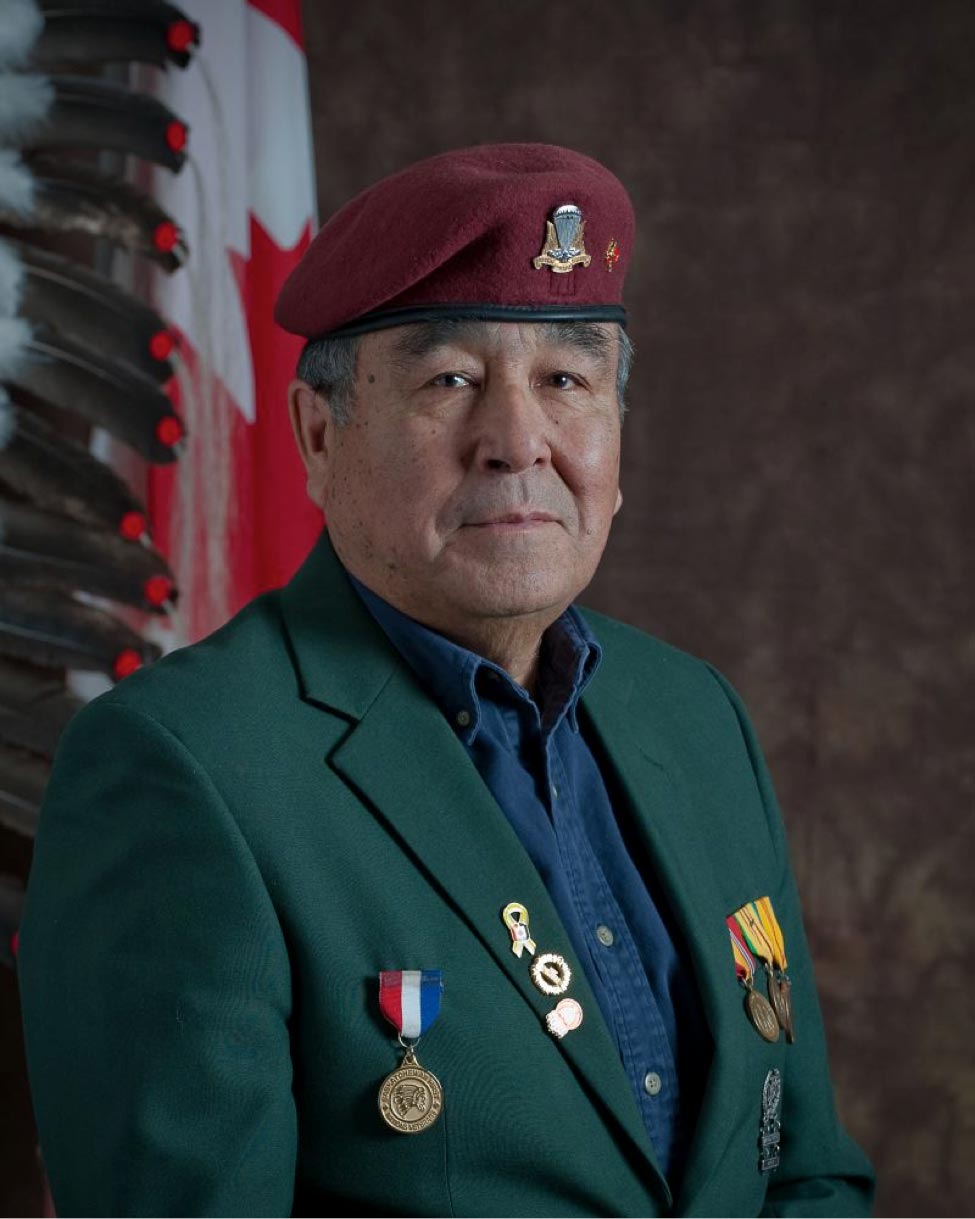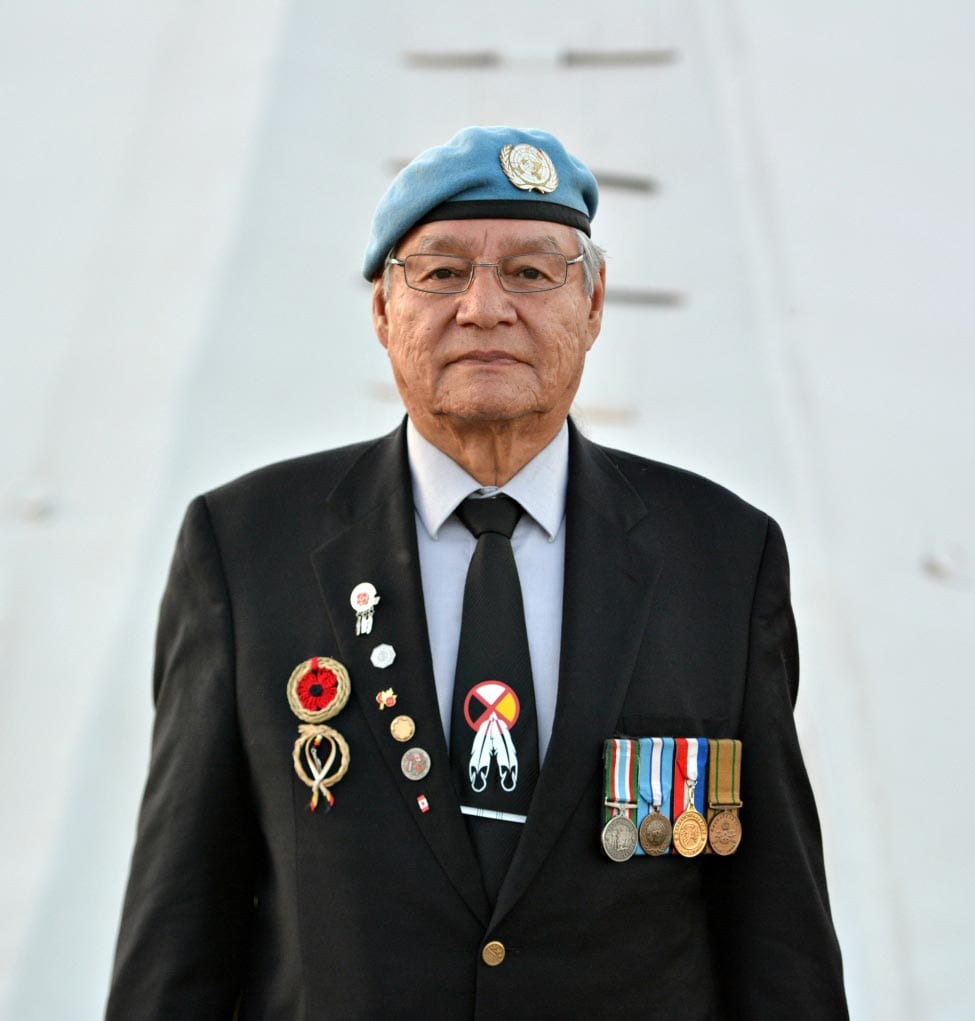(Emile Highway, (left) and Steven Ross, at the House of Commons Standing Committee on Veterans Affairs Tuesday in Ottawa. Photo: Lucy Scholey/APTN
Emile Highway wanted nothing to do with his military uniform after he retired in 1982.
The member of the Peter Ballantyne Cree Nation in northern Saskatchewan said he felt he didn’t get adequate support after serving 20 years in the Canadian Armed Forces.
“I didn’t feel comfortable in talking to former military personnel (or the) Veterans Affairs department. I didn’t want anything to do with the uniform anymore,” he told the House of Commons standing committee on Veterans Affairs on Tuesday.
“I completely wanted to isolate myself from that culture.”

Once known as the “forgotten soldiers,” Indigenous veterans campaigned for recognition of their services and proper benefits, leading to a federal government apology and compensation package for First Nations in 2003.
But in the complex realm of veterans benefits, many former Indigenous military members say they still face a unique gap when it comes to receiving supports, particularly those living on northern remote reserves.
“I think part of the problem with Veterans Affairs is there’s a sort of assumption that, ‘If you build it, they will come.’ But in this case, you have to go to them,” said Scott Sheffield, an associate professor in history at the University of Fraser Valley.
“We’re talking about a significant cultural divide here for Aboriginal communities and for government services. It’s not a neutral divide. There’s a history of suspicion, of distrust, of really difficult relationships over decades, many decades, for many communities.”
Sheffield wrote a 2001 federal report on First Nations veterans issues, which lead to the government’s apology two years later. He said the problems with Indigenous benefits compensation have roots in the Veterans Charter, which was drafted during the Second World War to help soldiers transition back home.
The charter was designed so that those fighting overseas could return to their jobs and gain access to land and university tuition fees. But those provisions depended on whether those soldiers already had pre-war education, land and work experience. Most of the Indigenous military members did not.
A liquor ban on anyone identifying as a Status Indian meant that many Indigenous veterans could not access Legion Halls for support or advice on post-war benefits, Sheffield said.
Status Indian veterans were also told to return to their reserve and get information from Indian agents, instead of a Veterans Affairs advisor. In many cases, Sheffield added, those agents were overworked and ill-equipped to provide advice.
Similar problems remain for Indigenous veterans today, whether on- or off-reserve.
“Many veterans are unaware of the services available and how to access them,” said Steven Ross, Grand Chief of the Saskatchewan First Nations Veterans Association. He wants to see a study for an all-nations veterans wellness facility that provides in-house treatment for returning veterans, a cross-Canada veterans association and more support for widows and families.

The barriers for Indigenous veterans range from linguistic to physical, as members of remote northern reserves can be situated hundreds of kilometres away from Veterans Affairs services.
Danny Lafontaine, a Metis veteran and public relations officer with the Association des Vétérans Autochtones du Québec, works on the ground with homeless veterans in Montreal. He said some reserves are doing what they can to care for their former servicemen and servicewomen, but there’s no coordination between northern communities and southern health services.
“They’re having more help on the street in Montreal, right now, than on their own reserve,” he said.
Highway said post-Afghanistan War veterans have had more access to benefits and services now than when he left the military. He said he didn’t receive any counselling after two of his friends died in a training accident in the 1960s. He also didn’t have access to career skills training when he was transitioning out of the military, recalling how he asked his superiors to help him draft a resume.
“They simply kind of snickered and walked away,” he said.
Highway has since donned his uniform again and done advocacy work as president of the Prince Albert branch of the Saskatchewan First Nations Veterans Association.
This formerly “forgotten soldier” has hope, as the federal government studies ways to improve the benefits and services offered to Inuit, Metis and First Nations veterans. The standing committee on Veterans Affairs is travelling the country, gathering input for a final report with recommendations.
“I think it’s a very encouraging sign that maybe the gap that we’ve been talking about for quite a while may be beginning to close.”










